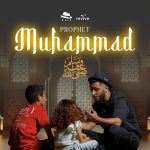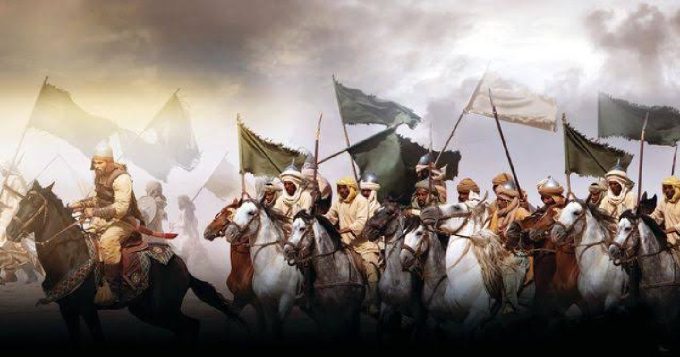The example of the Prophet Muhammad – Being a Muslim and a follower of the great Prophet Muhammad SAW is a privilege in itself for a Muslim because how could the figure of the Prophet Muhammad as the final prophet or last prophet on earth be a figure who was very influential in the spread of Islam and became a role model? the most special for Muslims throughout the world.
He brought Islam into a religion that loves peace and teaches goodness to its followers. It is not surprising that even though his figure has been dead for a long time, his good teachings and his miraculous legacy in the form of the holy book Al-Qur’an are one of the legacies that are a sign of goodness for Muslims throughout world today.
In fact, because he is such a special figure in the eyes of Muslims, every day his birth is celebrated with great joy by holding religious events which aim to always emulate his character and behavior while he is still alive for the people who come after him. It is not surprising that there are so many role model attitudes that are always taught by parents, teachers or Islamic religious leaders to continue to be spread and emulated well.
And, as one of the five prophets who were given the title of ulul azmi, a title given to prophets who had high determination. Even though they were faced with various obstacles while carrying out their duties in conveying the teachings of Islam, they remained patient and determined to be able to get through it. Therefore , it is very good for us Muslims to emulate the characteristics of the Prophet Muhammad SAW as our guide to living life in this world so that we always do good and believe in the power of God.
And, what are the characteristics and commendable behavior of the great Prophet Muhammad ? For that reason, in this discussion we will discuss the nature and behavior of the role model of the Prophet Muhammad SAW which is good to emulate.
History of the Prophet Muhammad SAW
Muhammad (Arabic: محمد; born in Mecca, 570 – died in Medina, 8 June 632 AD) was a prophet and the last messenger of Islam. Muhammad began to spread Islamic teachings throughout humanity and inherited Islamic authority. Muhammad supported the teachings of monotheism to uphold God’s commands, as brought by previous prophets and apostles.
Muhammad was born in 570 AD in Mecca, his father’s name was Abdullah and his mother’s name was Aminah. Muhammad’s father died when Muhammad was 6 months old in his mother’s womb and his mother died when Muhammad was 6 years old. After being orphaned, Muhammad was raised by his grandfather Abdul Muttalib until he was 8 years old, after which Muhammad was raised by his uncle Abu Talib for almost 40 years and received his first revelation from Allah.
Three years after the first revelation, Muhammad began preaching in public, declaring the oneness of Allah, becoming an adherent of Islam as the true religion, and rejecting all gods other than Allah. Muhammad received revelations gradually until his death. Muhammad’s habits or practices are told in the Hadith, which Muslims call a source of Islamic law along with the Qur’an.
Muhammad and his early followers faced challenges and persecution from various tribes in Mecca. When the persecution continued, Muhammad allowed some of his followers to migrate to Habisha before Muhammad migrated to Medina in 622. The migration event marked the beginning of the Islamic Hijri calendar. In Medina, Muhammad united the tribes under the Charter of Medina.
After eight years of attacks by the Meccan tribes, Muhammad gathered 10,000 Muslims to besiege Mecca. The attack met with little resistance and Muhammad managed to conquer the city with little bloodshed. He destroyed the idols. In 632 CE, a few months after returning to Medina after completing the Farewell Pilgrimage, Muhammad fell ill and later died. Muhammad left the Arabian peninsula for a unified Islamic government and most converted to Islam.
The Prophet Muhammad is a role model for all Muslims in the world. The figure of the Prophet Muhammad SAW is a noble and special person. It is said to be noble because his morals are a symbol of the morals of the Qur’an. I say special because he is the only perfect model that we must emulate. Perfect physically and perfect morally. Morality in family, religion and society.
That as a prophet (messenger of Allah) he received revelation in the form of the holy book of the Qur’an.
The book of the Koran, which was revealed by Allah SWT to the Prophet Muhammad through the angel Gabriel, is a guide for mankind throughout the world during his life, to guide his life, to make his life happy and peaceful from the time he lived in this world until his next life in the afterlife.
The Prophet Muhammad SAW was sent to this world to improve human morals, which at the time of the arrival of Islam was still known as the Age of Ignorance in Mecca at that time. An era where society has bad habits.
Likes to drink, the rich oppress the poor, the strong oppress the weak, hate girls very much, if having girls is considered shameful, then barbaric acts are committed against living girls. And there are many other bad habits.
So Allah sent the Prophet Muhammad SAW to call ignorant people to abandon their bad deeds and worship Allah SWT. Guided by the Koran, the Prophet Muhammad SAW remained in the midst of Jahiliyah society to save them from moral decay.
As mentioned above in the second paragraph, the Prophet Muhammad is a reflection of the essence of the Qur’an. In this regard, as reported by Hisyam bin Amir, he once asked Aisyah RA about the morals of the Prophet Muhammad. Aisyah answered: “The essence of the Prophet SAW is the Koran” (HR Muslim).
Aisyah’s answer was unusually short but full of meaning. He described the Prophet SAW with one attribute that could represent all existing attributes. It is true that the essence of the Prophet SAW is the Koran. Therefore, the Prophet Muhammad’s choice to carry out this difficult task was certainly very appropriate.
The Main Characteristics of the Example of the Prophet Muhammad SAW
1. Siddiq
Siddiq means right. This means that the Prophet Muhammad SAW had to convey the truth. An apostle would not lie. The Prophet always spoke the truth. His actions and words form the content of the Koran.
So obey Allah and His Messenger as mentioned in the QS. An-nisa verse 59 follows:
“O you who believe! Obey Allah and obey the Messenger (Muhammad) and Ulil Amr (Ruler) among you. If you disagree about something, refer to Allah (the Qur’an) and the Messenger (His Sunnah), if you believe in Allah and the Last Day. It is more important (to you) and the consequences are better.”
2. Amanah
Amanah means trustworthy. This means that the person must be trustworthy. An apostle will not cheat. When a promise must be kept. If you receive trust, you must send it.
The Messenger of Allah is a figure who always shows the character of trustworthiness. Since childhood, the Prophet had this credibility. It is said that when he was sent to herd goats, he always took good care of them.
3. Fatonah
Fathonah means intelligent. This means that an apostle must have high intelligence. When facing problems and challenges, when facing trials, when there is a task ahead for example, it can happen at once, there are several tasks that must be completed.
The intelligence of the Prophet is always seen in all his actions and decisions, both in war and in preaching. Because of his intelligence, he became the main reference for his followers in solving these problems.
Intellectually, the Prophet was proficient in language, counting, memorizing, visionary and intelligent in solving problems.
One proof of this is seen when the Prophet led the battle of Badr and prepared his strategy. At that time, the Prophet could only estimate the number of enemy troops by looking at the number of goats and camels killed by the enemy every day.
He was indeed a leader we should emulate. Truly intelligent. You could say multi-talented.
4. Tabligh
Tabligh means to convey. An apostle must say what must be said. Realizing his vision and mission.
The same is true with the Messenger of Allah. He always gave revelations from God. He did not hide anything.
Regarding this, Allah SWT once said:
“So that He may know that they have indeed conveyed the messages of their Lord, and (in fact) His knowledge encompasses what is with them, and He enumerates all things one by one.” [QS. Al – Jin 28]
As the people of the Messenger of Allah, let us try our best to emulate his noble qualities. Take action and apply them in everyday life. Both family life, religion and society.
Emulating the Behavior of the Prophet Muhammad in Daily Life
1. A Big and Honest Trader
At the age of 17-20, the Prophet Muhammad traded with an old trader in Mecca. However, all of Muhammad’s colleagues and business partners acknowledged his business skills, honesty and professionalism in business.
At the peak of his success as an honest businessman, he gained the trust of the congregation of Mecca to establish a company, namely Siti Khadijah. The salary he received for carrying goods from Siti Khadijah was approximately four camels per month.
From the cooperation and business system or business model directed by the Prophet through the syirkah contract, namely the salary and profit sharing system (Mudharabah) with Siti Khadijah.
The concepts of sharia-based economics were born, which are applied in the current business system. Indeed, the Prophet Muhammad’s business idea really avoids and stays away from usury.
The usury system in Islamic teachings is indeed forbidden, even the Prophet and Allah Subhana wata’ala hate it. Because the usury system causes losses for one of the parties bound by a trade contract or trade system.
2. Humility
Humility is a very important character trait for every person to have, because it is this trait that gives birth to various noble attitudes and makes people’s lives peaceful. As stated by the Prophet Muhammad, he was always humble to everyone and never boasted even about his honor and privileges.
The Prophet’s words are explained in a hadith narrated by Bukhari as follows:
Based on the history of Umar r.a, he said: “The Messenger of Allah SAW said, ‘Do not praise me (excessively) as the Christians have praised Isa Ibn Maryam excessively, because in fact I am only a servant. Therefore, call (me) a servant of Allah and His Messenger.” (HR. Bukhari)
3. Noble Morals
Rasulullah SAW certainly had the most noble morals to serve as an example for his people. His noblest morals always included good opinions, he never did bad things, behaved rudely and never shouted.
Moreover, Rasulullah SAW never retaliated against anyone for the bad deeds that befell him. In fact, he wished the person who had wronged him with good deeds.
As explained in the Hadith of Imam Ahmad from Abu Abdillah Al Jadal, he said: “I said to Aisyah: “How did Rasulullah SAW treat his family?” Aisyah answered: “He is a person with the most commendable morals. “The Messenger of Allah never acted cruelly, rudely and never shouted in the middle of the market. He will not repay evil for evil. But he forgave and forgave the mean things directed at him personally.” (HR. Imam Ahmad)
4. The Prophet’s love for others
The Prophet Muhammad’s love is seen from his very noble qualities. He was known to be gentle towards his companions, forgiving them and begging Allah SWT for their sins and mistakes.
In addition, the prophet also knew children well. It is said that when the Prophet Muhammad was praying, he heard a small child crying and became worried about the child. Then the Prophet accelerated his prayer because he knew that his mother must be very worried about her child’s crying.
Based on the history of Anas bin Malik, the Prophet Muhammad SAW said: “Indeed, I performed the prayer and intended to perform it for a long time. But I heard the baby crying, so I rushed to finish the prayer. Because I know a mother must be very concerned about her child’s crying. ” (HR Bukhari and Muslim)
5. The Prophet’s Tolerant Moral Character
The next characteristic of the Prophet that every Muslim must have is to always be tolerant. This characteristic makes someone obedient to Allah SWT: As much as possible, for example, patience in facing trials or unpleasant events and the ability to accept them wholeheartedly.
As narrated by the Prophet Muhammad SAW in the hadith of Anas bin Malik in Bukhari and Muslim, he said: “I once walked with the Messenger of Allah SAW, who at that time was wearing a turban from the Najran region with a thick head. Then someone from the village followed him, who managed to catch up with him.
A villager pulled his turban so hard that I saw a scar on the side of the Prophet’s neck due to the pulling force. Then the villager said: “O Muhammad, give me the wealth of Allah that you have”, the Messenger of Allah SAW turned and laughed. He ordered to give the person the wealth. ” (Narrated by Bukhari and Muslim)
6. The Generosity of the Prophet Muhammad SAW
The Prophet Muhammad was known for his greatness and generosity. Even when he had wealth, he always fought for it with Allah without demanding anything in return. His generosity is told in many hadiths, one of which is in the following hadith:
“The Messenger of Allah was approached by a man who asked him for something. So the Messenger of Allah ordered to give someone a very large number of goats, the number of which was equal to the distance between two mountains. Finally the man returned to his people and said: “O my people, enter into Islam, because Muhammad will give you a reward so that you will no longer worry about poverty.” (HR.Muslim)
Conclusion
That’s a brief discussion about the exemplary behavior of the Prophet Muhammad SAW. Not only discussing the history of the Prophet Muhammad SAW, but also discussing what examples we can take from the story and character of the Prophet Muhammad SAW.
Reading and emulating the story and character of the Prophet Muhammad SAW teaches us to always do good and become a person with noble morals and not demand good in return for our good deeds in order to avoid selfishness and showing off.
That’s a review of the exemplary behavior of the Prophet Muhammad SAW. For Grameds who want to learn all about the exemplary behavior of the Prophet Muhammad SAW and knowledge related to other religions, you can visit Gramedia.com to get related books. As #SahabatTanpaBatas, Gramedia always provides the best products, so that you have the best and latest information for you.
Source : gramedia.com










Leave a comment